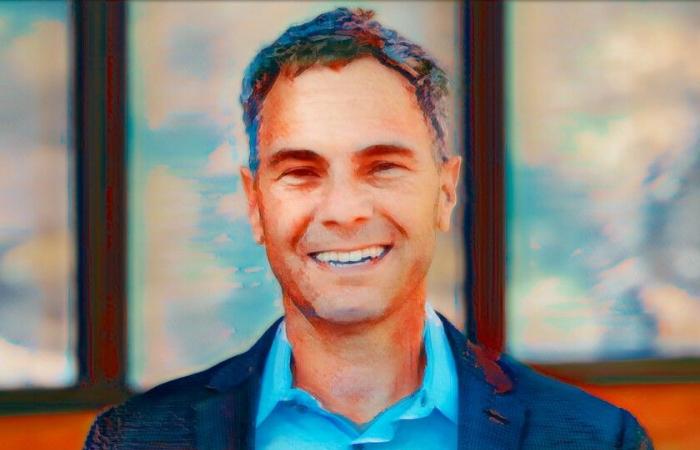
Creating Shazam, an app available on 2 billion iPhones, has not been the only achievement of this entrepreneur
What if you could use your phone to identify any song playing in the background, even if you’re on the street or in a bar full of people talking loudly? This question doesn’t make sense today. We can hum a melody and the learning models They will be able to identify the song that we have on the tip of our tongue. What’s more, any current iPhone has tools to recognize any song without even having the Shazam application installed.
However, just a decade ago this was a technological challenge. A challenge that audio signal processing experts called it “absolutely impossible”. And, therefore, a sufficiently suggestive challenge for Chris Barton. Because this is the hallmark that defines Chris Barton: if you can’t do it, you have to find a way to do it.
“What song on that?” The success of Shazam
The son of a nuclear physics professor and a computer science professor, both engineers, Barton graduated in Economics from the University of California with one of the highest academic records. He later earned his master’s degree in Business Administration and entered as an intern at MSN, a Microsoft subsidiary, in London. He started strong, of course.
But in the summer of 1999, a night of fooling around with his friends at UC Berkeley, the question arose: Can you recognize a song on a phone? In theory it is feasible: the phone has a microphone. “An incoming text message would instantly tell you what tune it is.” But apparently that was impossible: you cannot isolate background noise. Or if?
After a year of testing and together with PhD in data science Avery Wang, Barton found the technology capable of recording a fragment of audio, isolating the melody, comparing the pattern with a vast database and figure out, in just a couple of seconds, what song it is about. There were still no prediction algorithms involved, just raw sampling. And at first the application crashed a lot. But it didn’t take long to refine itself.
Two decades before ChatGPT, In 2002, Shazam was the first AI-based product for mass consumption in the history of humanity., as Barton himself proudly emphasizes. And Barton began her journey by raising funds from different venture capital companies until she turned Shazam into a successful commercial app in 2002. And as if nothing had happened, in 2004 she left for Google, when she was still private. There she developed several key algorithms — she holds 12 patents, eight of them registered within Google’s offices. Over the next decade she continued to be involved in Shazam’s governance as a board director until 2018, when Apple acquired Shazam.
From Google to Dropbox
That of many could already be called a successful career. However, Chris Barton’s does not end here. In 2011 he joined Dropbox and played a key role in areas such as Android business development and establishing partnerships with mobile operators. Meanwhile, he continued to watch his little toy grow: Shazam was acquired by Apple in 2018 for no less than 400 million dollarswhen the app generated about $500 million in downloads.
In 2022, Apple stated that Shazam had been downloaded more than 2 billion times. It was, de facto, one of the ten most successful applications in history. But Chris was already on to other things: in mid-2018 he had founded the startup Guard, focused on preventing accidents in swimming pools through artificial intelligence.
And in the meantime he gave talks around the world, wrote two books and, as can be seen in the documentary ‘Achieving the impossible’, always applying the same fundamentals of “starting from scratch”, what Aristotle called “the first basis from which a thing is known“. Something that relates him to Steve Jobs himself.
In Applesfera | How much battery does the iPhone have: models and number of mAh in each one
In Applesfera | iPhone 16: release date, price, models and everything we think we know about them





